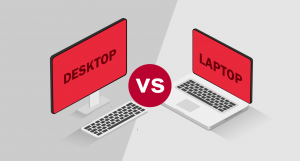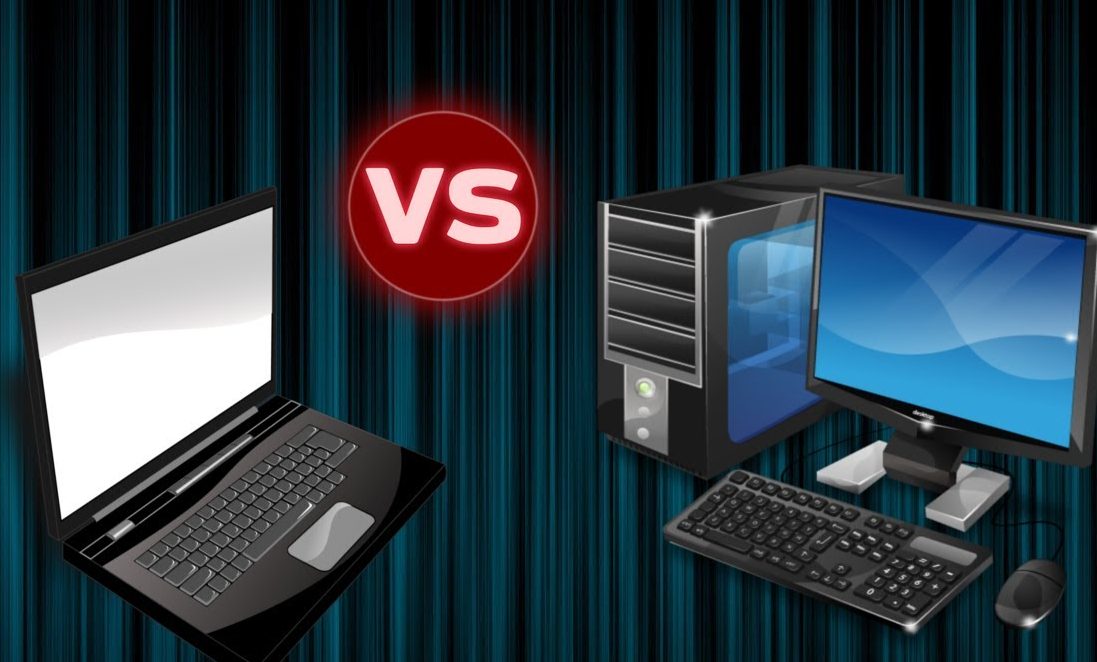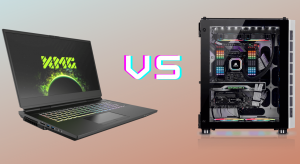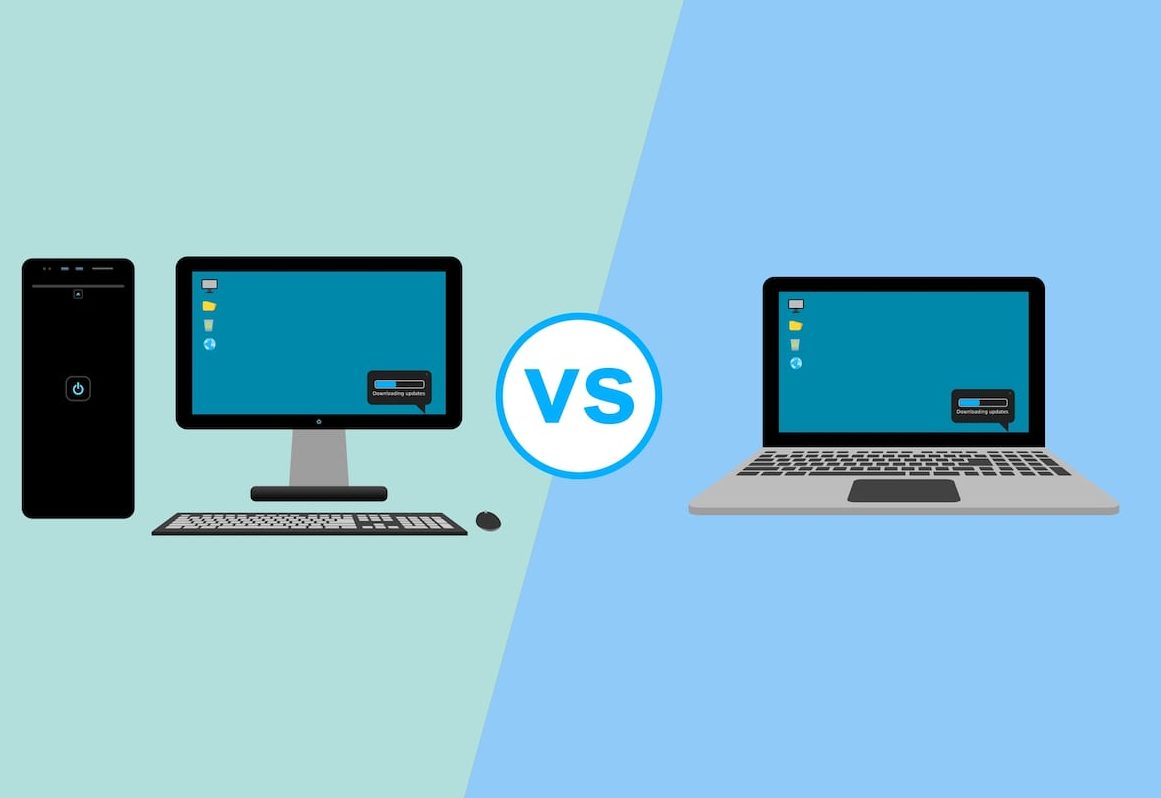Are you trying to decide between a laptop or desktop computer? It can be difficult to choose the right one for your needs. In this article, we will explore the pros and cons of both laptops and desktops so that you can make an informed decision about which type of computer is best for you. We’ll look at factors such as portability, performance, cost-effectiveness, and more in order to help guide your purchase decision. So read on if you’re ready to learn more about laptop vs desktop computers!
Examining the pros and cons of laptops versus desktops
When it comes to laptops versus desktops, there are pros and cons to each option. It really depends on what your needs are as to which type of computer is better for you. Here are some things to consider:
Laptops are more portable than desktop computers, so they are better if you need to take your computer with you when you travel. They are also easier to set up and take down, so they are a good option if you don’t want to deal with the hassle of setting up a desktop computer.

Laptops typically have less storage space than desktop computers, so if you need to store a lot of data, a desktop computer might be a better option. Laptops also tend to have shorter battery lives than desktops, so if you need to be able to use your computer for long periods of time without being plugged in, a desktop might be a better option.
Desktop computers typically have more powerful processors than laptops, so they can handle more demanding tasks. They also usually have more storage space and longer battery lives than laptops. However, they can be more expensive than laptops and they are not as portable.
Computing for different purposes: identifying what type of computer best suits your needs
Just as there are many types of people, there are also many types of computers. So, which type of computer best suits your needs? It depends on how you plan to use it. Here is a brief guide to help you decide whether a laptop or desktop computer is better for you.
If you need a computer mainly for email, social media, and basic web browsing, a laptop will probably suffice. Laptops are also a good choice if you travel frequently and need to take your computer with you. They’re typically smaller and lighter than desktop computers, making them more portable.
On the other hand, if you need a computer for more demanding tasks like video editing, gaming, or graphic design, you’ll likely be better off with a desktop computer. Desktop computers tend to have more powerful processors and graphics cards than laptops, making them better suited for resource-intensive tasks. Plus, they’re usually less expensive than laptops with comparable specs.
Of course, there are exceptions to every rule. Some high-end laptops can handle demanding tasks just as well as desktop computers. And some people simply prefer the portability of laptops over the larger form factor of desktops. Ultimately, it’s up to you to decide which type of computer best meets your needs.
Portable or stationary – comparing mobility & accessibility factors between laptop & desktop computers
When it comes to laptop and desktop computers, there are a few key differences that you should take into account. Portable computers, such as laptops, offer a high degree of mobility and are often more convenient for users who travel frequently or need to work in various locations. However, stationary computers, such as desktop PCs, offer better accessibility since all of the components are housed in one unit. When deciding which type of computer is best for you, consider your needs in terms of mobility and accessibility.

If you require a high degree of mobility, then a laptop is likely the best option for you. Laptops are small and lightweight, making them easy to transport from one location to another. Additionally, most laptops come equipped with built-in wireless connectivity, so you can always stay connected to the internet no matter where you are.
On the other hand, if you prefer to have all of your computer components in one place, then a desktop PC is probably a better choice. Desktop computers offer easier access to all of the ports and drives, so you don’t have to worry about connecting and disconnecting various cables each time you want to use your computer. Plus, desktop PCs tend to be more powerful than laptops, so they’re ideal for users who need a lot of processing power for things like video editing or gaming.
Cost vs performance: evaluating which computer is most worth your money
When it comes to choosing a computer, one of the main considerations is cost versus performance. In other words, how much power and speed do you need, and how much are you willing to pay for it?
Generally speaking, desktop computers tend to offer more power and speed than laptops for the same price. However, laptops have several advantages that make them worth considering as well.
For one thing, laptops are much more portable than desktops, making them ideal for students or anyone who needs to take their computer with them on the go. Additionally, laptops typically have longer battery life than desktops, meaning you can use them for longer periods of time without having to worry about finding an outlet.

So, which is better? Ultimately, it depends on your needs and budget. If you need a powerful machine that can handle demanding tasks but don’t mind sacrificing portability, a desktop is probably your best bet. On the other hand, if you need a computer that’s easy to take with you wherever you go and don’t mind sacrificing some power, a laptop is probably the way to go.
In conclusion, the choice between a laptop or desktop computer depends on your individual needs and preferences. Laptops are more portable and convenient for those who need to take their work with them wherever they go, while desktops offer more power at a lower cost. Ultimately, it is up to you to decide which type of computer best suits your lifestyle and budget.
